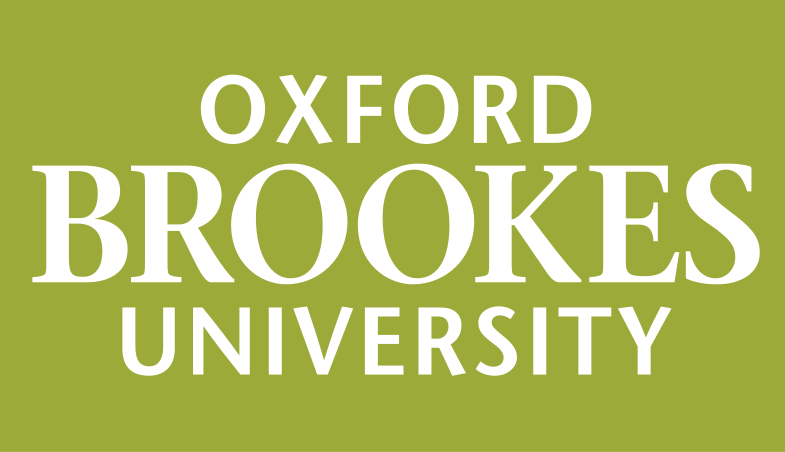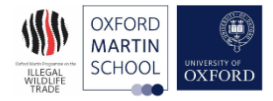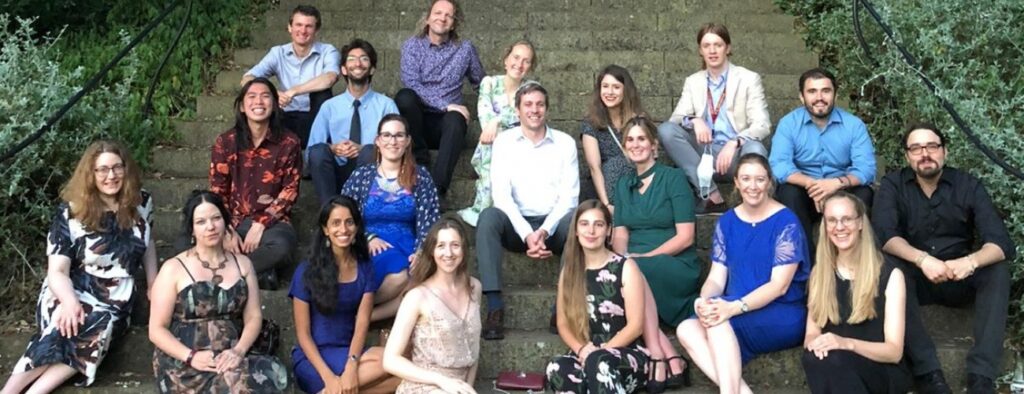University of Oxford
11a Mansfield Rd
OX1 3SZ
UK
About
The Interdisciplinary Conservation Network (ICN) is a bi-annual workshop that provides a select group of early-career researchers with a unique opportunity to produce a collaborative piece of research, take part in skill-building sessions, and develop global networks with fellow early career researchers. ICN 2020-21 is organised by the University of Oxford’s Interdisciplinary Centre for Conservation Science (ICCS) and Wildlife Conservation Research Unit (WildCRU), and the Oxford Brookes University Wildlife Trade Research Group. See here for more information.
ICN 2020-21
ICN 2020-2021 was a two-part workshop with an online and in-person component. This workshop replaced our original plan for an in-person only event in summer 2020 and is the third iteration of the ‘ICN’ model.
ICN included a series of virtual meetings September 2020 – July 2021, followed by a 3-day in person (hybrid) event in Oxford in July 2021. During the virtual meetings, 32 ECR participants and six mentors from around the world developed collaborative pieces of research with a tangible output based on their theme.
The three research themes included two specific to wildlife trade (focused on the linkages of human-felid conflict and wildlife trade, and online trade of wildlife products) and one theme on the value of examining the characteristics of conservationists themselves.
- Theme 1: A reflexive turn in conservation?
- Theme 2: A framework for studying online wildlife trade: challenges and opportunities.
- Theme 3: Illegal wildlife trade and human-felid conflict: a framework for evaluating linkages in the big-cat trade.
Virtual meetings
In September 2020, we held our kick-off meeting over Zoom for all attendees across the three themes. From then, each theme began to meet separately over Zoom. These virtual meetings were independently led by the theme leaders, with each theme meeting at least six times before the in-person event.
In-person event
During previous ICNs the in-person event was the kick-off to the collaborative research projects. However, in our structure the event was the ‘capstone’ to their months of ongoing work. This meant that attendees could spend more time gaining valuable skillsets tailored to them and their needs, while still moving forward with their theme’s research.
Skill-building sessions
These sessions provided our attendees with tangible, useful skills or knowledge that they could directly apply to their research and careers going forward. These topics were chosen by the participants for maximum relevancy.
Additionally, we offered two ‘Conservation stories’ sessions, which included more storytelling by the speakers regarding their topics (i.e. negative media attention and learning from failure).
Networking
ICN has fostered collaborative global networks that will serve participants throughout their careers in conservation science and practice. This ICN, in particular, has also served a unique and valuable function during COVID by providing a space for participants to meet and collaborate with colleagues internationally despite travel restrictions. This helps maintain social connectivity between otherwise isolated participants and allows participants to continue their overall career development despite a general dearth in current opportunities.
About the Interdisciplinary Conservation Network (ICN)
The transition from student to independent researcher is a big challenge. Not only are there a multitude of transferable skills to be honed, but the availability of opportunities is often dependent on an Early Career Researcher’s (ECR’s) professional networks, which can be challenging to cultivate. This is even more the case for ECRs based in low income countries. Furthermore, employers are often looking for examples of leadership that are hard for ECRs to provide, largely because there are few opportunities for them to truly drive decision-making in a research context, where more established researchers often take the lead. There are also few opportunities for ECRs to have the space to think together about important, cross-cutting or topical issues. This means that they rarely write high-profile, discipline-shaping opinion pieces for high impact journals, and early-career voices are missing from scientific debates. This issue is particularly urgent to address in conservation, where ECRs (particularly from low income countries) are the future leaders of the interdisciplinary research teams that the planet needs.
Why is ICN needed?
How do ICN workshops help? The aim of the Interdisciplinary Conservation Network (ICN) workshops is to provide ECRs with an opportunity to develop collaborative research with other ECRs from around the world, while learning key skills for the development of their careers. By using a bottom-up approach to planning and design, ICN workshops allow a team of ECRs to take charge of their own event. This helps them to build new networks, and produce an output that is relevant to their own research. At the same time, the participation of a few selected senior researchers ensures a high quality capacity-building and mentorship element to the workshops.

Prof Nils Bunnefeld, University of Stirling.
Workshop Planning
Each ICN workshop is a collaboration between Oxford-based ECR conservation scientists and one or two like-minded external research groups. ECRs brainstorm research theme ideas in an online forum, and collaboratively choose three themes per workshop. They choose mentors per theme to join them, and decide on transferable skills sessions that they would like to receive. The ICN workshops are advertised openly for applicants from universities and NGOs worldwide, and participants are selected based on their ability to bring new ideas and experiences to the theme. To keep the workshops small and interactive, the ECRs accept up to 12 participants per theme, of whom at least three are fully-funded from low income countries. The ECRs organise the workshop together, supported by their senior mentors and the ICCS Research Coordinator. This includes choosing the venue, schedule and catering.
The workshop itself
The workshop kick-starts a piece of collaborative research which concludes in a publication authored by the participants. For many attendees, this is their first experience of developing research ideas in a workshop format. Over the course of three days, delegates work in small groups to develop their concept supported by their mentors. The result is a unique combination of hands-on learning and real outcomes, both in terms of publication but also in building ongoing networks with peers.

Diogo Veríssimo
Overview of the event
The Interdisciplinary Conservation Network (ICN) is a bi-annual workshop that provides a select group of early-career researchers with a unique opportunity to produce a collaborative piece of research, take part in skill-building sessions, and develop global networks with fellow early career researchers. ICN 2020-21 is organised by the University of Oxford’s Interdisciplinary Centre for Conservation Science (ICCS) and Wildlife Conservation Research Unit (WildCRU), and the Oxford Brookes University Wildlife Trade Research Group. See here for more information.




ICN 2020-21
ICN 2020-2021 was a two-part workshop with an online and in-person component. This workshop replaced our original plan for an in-person only event in summer 2020 and is the third iteration of the ‘ICN’ model.
ICN included a series of virtual meetings September 2020 – July 2021, followed by a 3-day in person (hybrid) event in Oxford in July 2021. During the virtual meetings, 32 ECR participants and six mentors from around the world developed collaborative pieces of research with a tangible output based on their theme.
The three research themes included two specific to wildlife trade (focused on the linkages of human-felid conflict and wildlife trade, and online trade of wildlife products) and one theme on the value of examining the characteristics of conservationists themselves.
- Theme 1: A reflexive turn in conservation?
- Theme 2: A framework for studying online wildlife trade: challenges and opportunities.
- Theme 3: Illegal wildlife trade and human-felid conflict: a framework for evaluating linkages in the big-cat trade.
Virtual meetings
In September 2020, we held our kick-off meeting over Zoom for all attendees across the three themes. From then, each theme began to meet separately over Zoom. These virtual meetings were independently led by the theme leaders, with each theme meeting at least six times before the in-person event.
In-person event
During previous ICNs the in-person event was the kick-off to the collaborative research projects. However, in our structure the event was the ‘capstone’ to their months of ongoing work. This meant that attendees could spend more time gaining valuable skillsets tailored to them and their needs, while still moving forward with their theme’s research.
Skill-building sessions
These sessions provided our attendees with tangible, useful skills or knowledge that they could directly apply to their research and careers going forward. These topics were chosen by the participants for maximum relevancy.
Additionally, we offered two ‘Conservation stories’ sessions, which included more storytelling by the speakers regarding their topics (i.e. negative media attention and learning from failure).
Networking
ICN has fostered collaborative global networks that will serve participants throughout their careers in conservation science and practice. This ICN, in particular, has also served a unique and valuable function during COVID by providing a space for participants to meet and collaborate with colleagues internationally despite travel restrictions. This helps maintain social connectivity between otherwise isolated participants and allows participants to continue their overall career development despite a general dearth in current opportunities.
Outputs
Each theme is currently working to produce opinion pieces and scientific articles. Additionally, the reflexivity theme group is presenting at the Royal Anthropological Institute (RAI) 2021 conference and running a workshop at ICCB 2021.
We will post more information as outputs are finalised.
